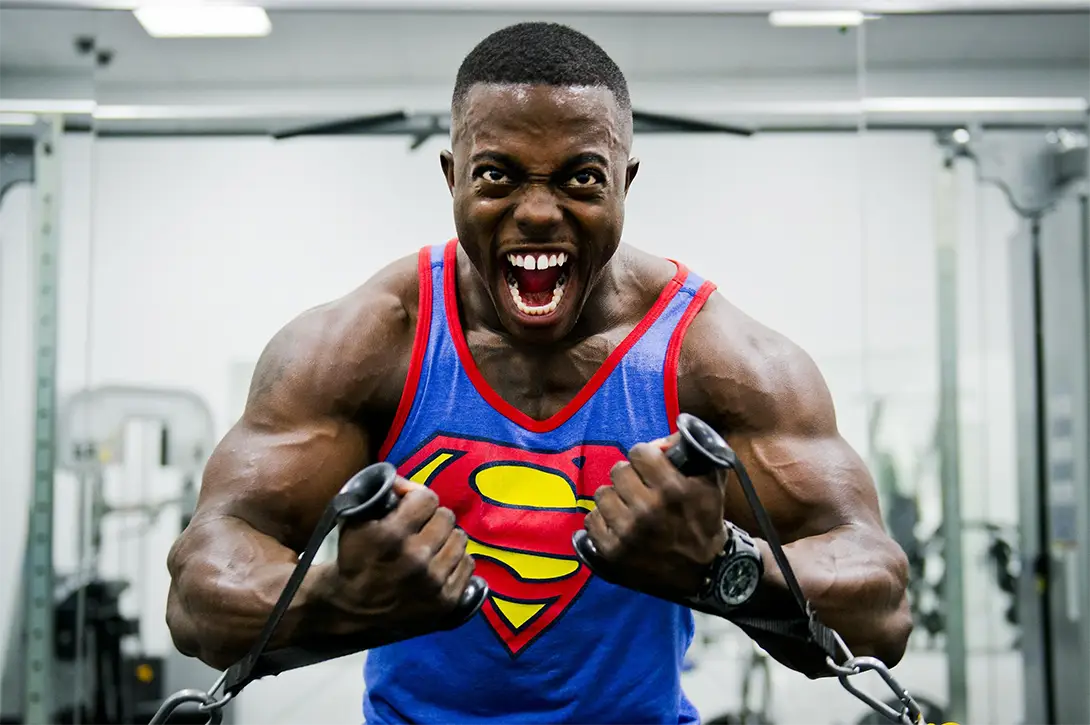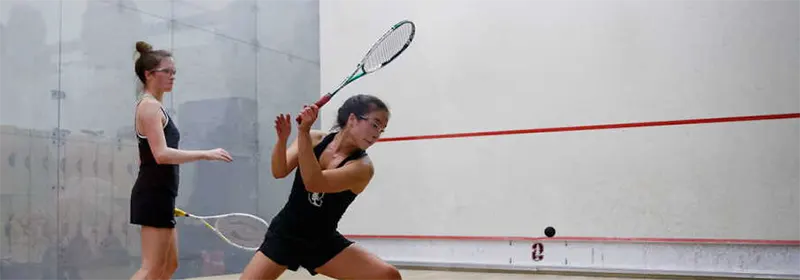30 June 2022 / 3-Min Read / Translate
Let’s take a real example. You have a fantastic forehand kill from the middle of the court. You have this great shot because you have specifically practiced it. You did that because when you first started solo practice, it was one of the things you did better than the others shots. It’s nice to hit good shots, so you did it for longer than other shots. pretty soon, you love practicing this shot because you have become really good at it.
You have even developed a reputation within your club as the “Forehand Killer”. Every time you practice other shots, they just don’t feel as smooth as this forehand. You do those other shots, but you probably do the forehand for twice as long. It’s enjoyable and you feel as they you really have a good training session. Who wants to hit shots they are not good at?

He is certainly training hard, and probably smart as well
Phew. I probably laboured that point, but I really wanted to drive it home.
When we are good at something we tend to enjoy it. We tend to enjoy it because we are good at something. It’s a training-performance circle. We are not lazy. Those workouts and training sessions are hard work. We sweat and we ache the next day – it must have been a good session, right? Yeah, maybe, but was it the best use of your time?

Make every second on a squash court count.
Smart training requires you or somebody else asses your game and produce a list of 3 top priorities. That can be difficult, e specially if you don’t have a coach or experienced player to help you. However, if you are honest with yourself you can probably find one or two things that you know need serious improvement. Perhaps that backhand service return, perhaps that forehand drop shot, it could be anything. It’s clearly something you are not very good at – probably something you don’t like practicing.
Whatever those aspects are, they are almost certainly the things that will make you play better squash. In many sports, especially tennis, it’s not unusual to find professional players who are well know for a particular shot. The problem is that amateurs see or hear about this and think they need a “signature shot”, not realising that the rest of their game must be good too. These pros don’t have “average” other shots and one “incredible” shot. They have “great” other shots and one “Unbelievable” shot.
So far, I have been using shots as example, but it could be something related to mentality or fitness. Few people like doing flexibility work (by the way, that is NOT stretching before and after a match!), but for many amateurs that might be a key element in their improvement. Sure, the chances are they need to do more strength and cardio work, but it’s a good example of Smart vs Hard. Too often we think that if we haven’t sweated then we didn’t have a good training session, and it’s not true.
There is an element of psychology involved in this as well. And there is no reason why we can’t have Smart AND hard training sessions. All I ask is that you look at your training plan and question whether everything you are doing is the right thing for your current needs.
Practice or train the aspects that your NEED, not just the things you enjoy.